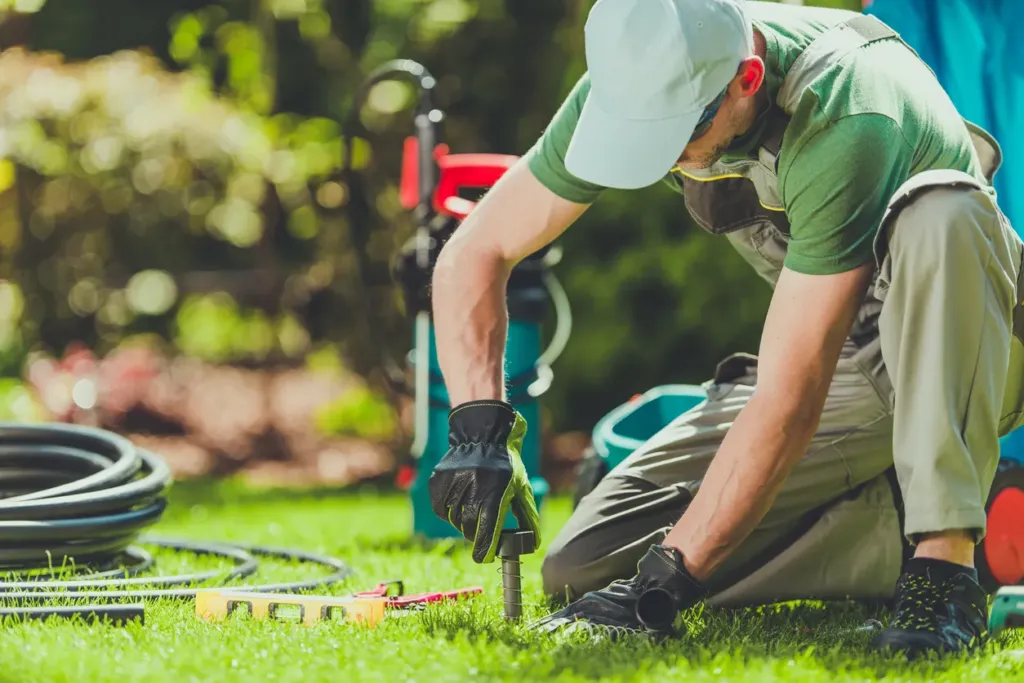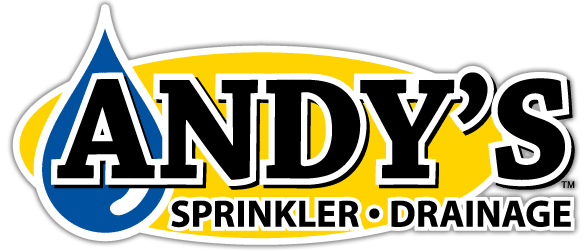
Sprinkler Valve Solenoid Repair in Waco, Texas
In Waco, TX, a properly working sprinkler system makes it easy to keep your lawn healthy through the hot summers and seasonal rains. When a sprinkler valve solenoid fails, it can cause problems like zones that never activate, sprinklers that won’t shut off, or weak water pressure across your system. These issues can waste water and harm your landscape if not fixed quickly.
Andy’s Sprinkler, Drainage, & Lighting proudly serves Waco homeowners along with other Texas communities including Carrollton, Southlake, Austin, Lubbock, and San Antonio. With years of expertise across Central and North Texas, our licensed professionals provide dependable solenoid repairs that keep sprinkler systems running at peak performance.
Signs You Have a Problem
The solenoid is what controls the water pressure. It receives an electric current from the controller to determine what adjustments need to be made. It uses a plunger to adjust the valve, and there are a few more moving parts in the mix. All of this is what allows an automated sprinkler system to run things for you and provide that great convenience. But when the solenoid is bad, you can get some weird sprinkler problems, such as the water won’t shut off.
What Is a Sprinkler Valve Solenoid & How It Works
The solenoid is essentially the “switch” of your irrigation system. Once it gets a signal from the controller, it activates the plunger that opens or closes the valve. This process regulates the water pressure and ensures the sprinkler heads distribute water evenly across your lawn. Most Waco homeowners use normally closed (NC) solenoids, but some larger properties may have advanced multi-zone systems requiring 2-way or 3-way solenoids. Without a working solenoid, even the most modern sprinkler system can’t do its job.
The Water Won’t Shut Off
If you have this problem, it’s very likely the solenoid. A problem with the plunger can prevent the solenoid from closing the valve when it’s time. That means your sprinklers will keep running after they’re supposed to stop. If you run into this problem, the first step is to turn off the water. If you can’t get it off at a local source, you can shut it off at the main. Once you get the water shut off, call the licensed professionals at Andy’s Sprinkler, Drainage & Lighting!
Other Common Solenoid Problems
Aside from sprinklers that won’t stop running, other issues Waco residents may see include:
• Valves that never open, often caused by wiring faults.
• Solenoids overheating, pointing to electrical trouble.
• Repeated clicking, showing the plunger is struggling to engage.
• Sediment buildup inside valves, which can be worse in Waco where clay soil and storm runoff sometimes clog irrigation lines.
These problems are best handled by professionals to avoid bigger system damage.
Low or Uneven Water Pressure
The solenoid controls the water pressure. Knowing that, it’s not surprising that a bad solenoid can lead to water pressure issues. If your system isn’t delivering water to every corner of the lawn like it once did, the solenoid is one of the most likely culprits. While this issue is not an emergency, we highly suggest you give Andy’s a call at your earliest convenience and one of our licensed professionals can fix it for you.
Water Leaks
There are many points in a sprinkler system that can leak. No matter the cause, leaks should never be ignored. They can run up a monstrous water bill and cause additional damage. So, if you see a leak, call Andy’s Sprinkler, Drainage & Lighting immediately! As far as the solenoid goes, it’s the main valve for the automated sprinkler system. It’s definitely a common place for leaks to occur.
Diagnosing the Solenoid
When we come to repair your sprinkler system, we’ll do a full diagnosis during our sprinkler system checkup. That’s part of the deal. Assuming the solenoid is the problem, these are some of the things we’re likely to do to identify and resolve the issue.
DIY Troubleshooting Checklist
Before calling Andy’s, Waco homeowners can try a few simple steps:
• Use a multimeter to check solenoid voltage and continuity.
• Remove the solenoid cap and check for dirt or debris on the plunger.
• Rinse the valve gently to remove sediment from clay-heavy water.
If the problem continues, let Andy’s licensed professionals take care of the rest.
Current Testing
Sometimes the electric signal is the problem. We’ll check the current and resistance to make sure the circuitry is working as it should. When the problems are related to circuitry, we can find and replace the faulty part. Often a small part of the whole is the culprit, and the repair isn’t too troubling. That said, larger electrical problems can be an issue. Whatever the problem may be, Andy’s can handle it!
Valve Inspection
If the problem isn’t electrical, it’s mechanical. The best way for us to rapidly diagnose mechanical issues in the solenoid is to take a good look at the valve. Sometimes the problem is apparent, and we can get straight to it. In other cases, we might need to disassemble, clean, and inspect the inner components of the solenoid. This will give us a close look at everything and help us find the faulty part.
Parts Replacement
When we take apart the solenoid valve, we’re going to look over each individual component. That will help us identify the ultimate root cause. Once we know where the fault lies, we can replace the component and get your sprinkler system working again. In a worst-case scenario, it could be an irreplaceable part of the solenoid, such as the housing, meaning we might have to replace the entire solenoid instead of a smaller component.
Repair vs. Replace – What Waco Homeowners Should Know
On average, solenoid part replacements run $30–$150, with labor costs varying based on the size of the irrigation system. In Waco, where many homes have medium-to-large yards, some systems may need full solenoid replacements if multiple valves are failing at once. Andy’s can advise whether repair or replacement makes the most sense.
Preventive Maintenance Tips for Waco Yards
To extend the life of your solenoids:
• Flush your irrigation system after major storms to clear debris.
• Schedule seasonal system checkups before peak summer.
• Protect wiring connections from water intrusion.
• Watch for high water bills that may point to hidden leaks.
• Call Andy’s for annual maintenance so small issues don’t become costly repairs.
FAQs for Waco Homeowners
Why won’t my sprinklers stop running?
A bad solenoid plunger may be stuck open. Shut off the water and call Andy’s for help.
How much does it cost to replace a solenoid in Waco?
Generally $30–$150 for parts plus labor, depending on the system size.
Can I fix a solenoid myself?
You can try cleaning and basic testing, but full repairs are best left to a licensed pro.
How long do solenoids last?
Typically 7–10 years. In Waco, clay-heavy soil and storm runoff can shorten their lifespan if not maintained.
FAQs About Skipped Sprinkler Zones
-
Why won’t my sprinkler shut off?
It’s usually a bad solenoid plunger or wiring issue. Shut off the main water supply and call Andy’s Waco team.
-
How much does it cost to replace a solenoid?
Parts usually cost $30 to $150, with labor depending on your system setup.
-
Can I clean a sprinkler solenoid myself?
Yes, you can clear dirt or debris from the plunger and diaphragm. If it doesn’t fix the problem, call Andy’s.
-
How long do solenoids last?
Typically 7–10 years with proper care. Rockwall’s mineral-rich water and heavy soil can shorten that lifespan without regular maintenance.
Huntsville
273 Production Ave
Madison, AL 35758
